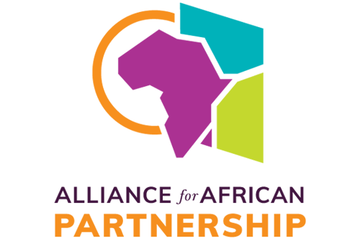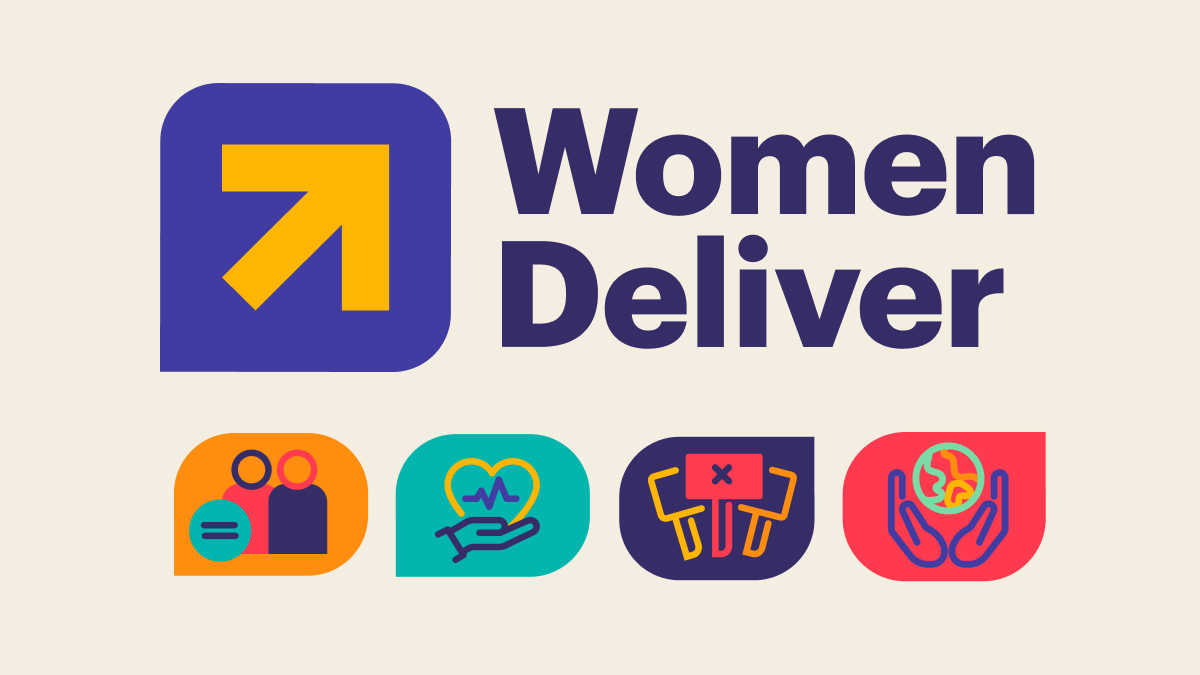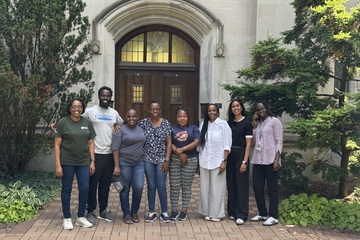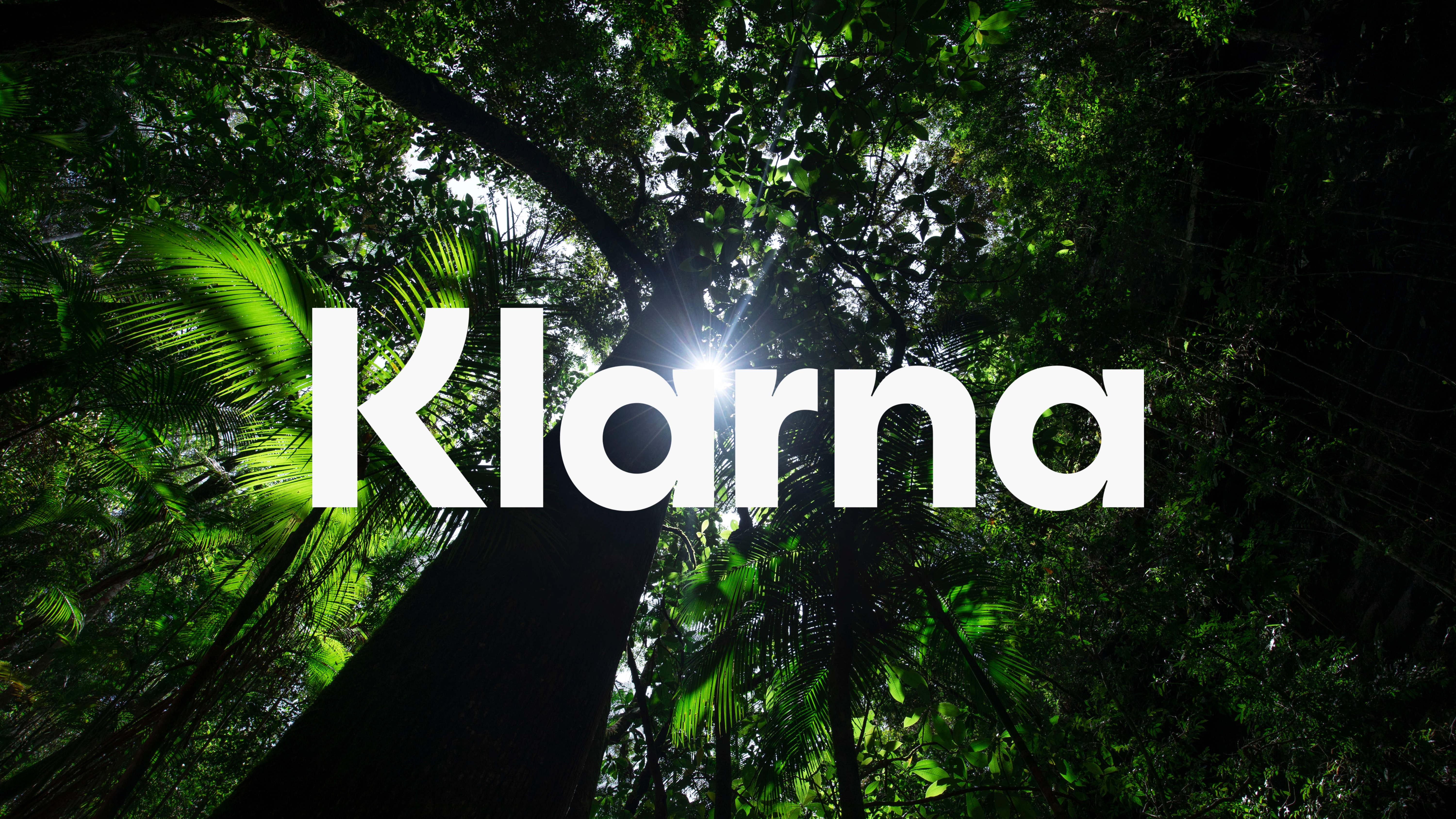Browse
Health And Nutrition
Africa Global Partnership Scholars
In an era where complex global challenges demand collective action, the need for international collaboration and knowledge sharing has never been more critical. Africa Global Partnership Scholars Program (Africa GPS) is a cohort-based program, designed for early to mid-career MSU faculty to create and deepen new scholarly partnerships with collaborators and peer institutions in Africa in support of MSU’s global mission.
PROGRAM OBJECTIVES:
Foster the development of a group of faculty members dedicated to establishing and enhancing international research connections, collaborating on solutions with African partners, and adopting a global perspective in their scholarly work
Support MSU’s 2030 strategic plan goal of discovery, creativity and innovation for excellence and global impact
Connect MSU faculty with potential collaborators and mentors in Africa, expand the scholars' international networks, and offer support for establishing long-lasting collaborations
Heighten global awareness and research dialogue
Elevate the status of MSU’s global mission
Capitalize on opportunities to leverage external resources and form partnerships
ELIGIBILITY FOR APPLICATION
Tenure-stream or fixed term faculty at Michigan State University without prior scholarly experience in Africa are eligible to apply for Africa GPS.
REQUIRED APPLICATION MATERIALS
As part of the application process, the applicant must submit the following materials:
Completed application questionnaire
An up-to-date curriculum vitae (max 4 pages)
A one-page statement that describes your reasons for applying, potential research focus, and if known, the AAP consortium institution and African country of interest for the collaboration. If needed, AAP can help identify the country, mentor and/or the collaboration partner based on the applicant’s interests.
A letter expressing strong support from the Chair/School Director/Dean. The letter should affirm:
The candidate’s international interest, experience, and/or research
The candidate’s strengths as a researcher within the context of unit expectations
The candidate’s proposed project will advance the mission and goals of the academic unit, be supported by the unit, and benefit international partners
Applicants are encouraged to obtain a commitment from their unit or college to provide a 20% cost share. While cost sharing is not required, preference will be given to proposals that include this match.
FUNDING
To facilitate the participation of faculty members selected as Africa GPS Fellows, AAP will provide support for the following:
Up to $10,000 in support of international travel and scholarly collaborations with a researcher and/or mentor at an AAP Consortium member institution. The $10,000 may be used to support the MSU faculty members’ individual travel, collaborative research activities or to bring an African partner to MSU.
Connection with potential collaborators, mentors, and institutions in Africa
Structured workshops on establishing and navigating international partnerships
Financial Guidelines:
The financial support must be expended prior to the end of the program (one year after awarded).
Preference will be given to applicants who provide a 20% match from the applicant’s unit, department or college.
PROGRAM EXPECTATIONS
Africa GPS participants are expected to develop a sustainable collaboration with peer researchers at an AAP consortium institution. As a result, within two years of being selected for the program, the scholar is expected to achieve the following outputs:
A collaborative research paper coauthored with their African collaborator to be submitted for publication.
A concept note of a proposal submitted to a funding agency to sustain the partnership with the African collaborator.
Progress reports submitted every six months to AAP documenting how the collaboration is progressing and any challenges that may have arisen.
Attend program orientation, professional development workshops organized by AAP, and other relevant events as shared by the AAP team.
SELECTION CRITERIA FOR GLOBAL RESEARCH FELLOWS
The criteria below will be utilized to evaluate candidates for their selection to the Africa GPS program:
Commitment Level: Applicants need to show a readiness to dedicate the necessary time to maximize the benefits of the Fellowship year, along with a proven scholarly potential that supports such a commitment.
Research Interest: Candidates should demonstrate a strong commitment to international research and articulate how participation in Africa GPS will contribute to their personal and professional development
Unit Support: Candidates must have strong support from relevant departmental or school and college administrators, indicated by enthusiastic recommendations.
Alignment of Interests: The applicant’s international research interests should align with the Africa GPS’s mission to foster excellence in international research.
Apply here: https://msu.co1.qualtrics.com/jfe/form/SV_bIS1j4JJxUE2voq
SELECTION OF FELLOWS
Applications are due by January 30, 2026. Application materials will be reviewed by a selection committee in International Studies and Programs. Scholars will be announced by May 2026. Funds must be transferred to selected scholars by June 30, 2026.
If you have any questions, please contact Justin Rabineau at: rabinea1@msu.edu
By:
Justin Rabineau
Monday, Dec 22, 2025
AGRI-FOOD SYSTEMS
+6

Leave a comment
African Futures Research Leadership Program - Cohort 6 Call for Applicants
AAP AFRICAN FUTURES RESEARCH LEADERSHIP PROGRAM
Artificial Intelligence in Africa: Transdisciplinary Innovations for Sustainable Futures
Cohort 6 Call for Applicants
Alliance for African Partnership (AAP) invites applications for the sixth cohort of the African Futures Research Leadership Program. This competitive visiting scholar program supports early career researchers from AAP consortium universities to collaborate for one year with faculty members at Michigan State University (MSU) and their home institutions. The program focuses on strengthening skills in impactful research, curriculum development, innovative teaching, scholarly and policy writing, dissemination of research results, and grant proposal development. Scholars will also participate in a structured professional development program while building meaningful and lasting connections with MSU faculty and fellow scholars.
The primary goal of the African Futures Program is to strengthen the capacity of emerging African researchers to become scientific leaders in their communities. The program seeks to foster long-term partnerships with MSU faculty, co-create innovative solutions to Africa’s challenges, and cultivate the next generation of research mentors and leaders.
AAP invites applications from early career researchers to join the upcoming cohort, which will begin virtually in February 2026. Scholars will spend September through December 2026 at MSU for the in-person phase of the program, followed by continued virtual collaboration through early 2027. Each scholar will receive a small grant to support research, teaching, and professional development activities, including conference participation and publication. Scholars will also receive a stipend during their time at MSU, visa support, and round-trip travel from their home institution.
Potential Teaching and Research Areas
The 2026 theme, “Artificial Intelligence in Africa: Transdisciplinary Innovations for Sustainable Futures,” highlights the potential of AI to address Africa’s most critical challenges and opportunities. AI research must be ethical, contextualized, and socially responsible, drawing insights from science, engineering, the arts, business, culture, and society. In addition to thematic research, scholars will contribute to the development of curricula for a transdisciplinary doctoral program in AI in Africa and explore innovations in teaching and learning.
We particularly encourage cross-disciplinary projects exploring AI’s transformative potential in:
Agri-food systems – leveraging AI for food security, sustainable agriculture, and resilient supply chains
Health and nutrition – applying AI in disease prevention, diagnostics, personalized medicine, and strengthening health systems
Climate change, water, energy, and environment – using AI for mitigation, adaptation, monitoring, and sustainable resource management
Ethics, governance, and society – integrating human rights, accountability, and inclusivity in AI design and deployment
Culture and the arts – examining how AI interacts with African languages, creative expression, heritage preservation, and digital storytelling
Engineering and science – developing AI-driven technologies suited to African contexts
Education – enhancing equitable access to learning, bridging digital divides, and improving pedagogy through AI
Business and entrepreneurship – fostering inclusive growth, financial technologies, and youth-led AI innovations to shape Africa’s digital future
Through transdisciplinary collaboration, the program aims to promote AI research and teaching that bridges technical and social disciplines, ensuring innovation reflects Africa’s diverse values and aspirations.
Program Benefits
Professional Development – Structured workshops on equitable partnerships, teaching innovation, academic time management, proposal development, budgeting, and research communication to enhance research, teaching, writing, and leadership skills
Leadership Development – A research leadership retreat focused on building leadership competencies, self-reflection, and career development for research advancement
Collaboration Networks – Each scholar will collaborate with MSU and home institution partners. Collaborators may conduct reciprocal one-week visits. Scholars will also join AAP’s network of researchers at MSU, across Africa, and globally to foster lasting institutional partnerships
Expected Outcomes
By the end of the program, each scholar and their team are expected to achieve at least:
Submission or publication of one to three joint manuscripts
Submission of at least one grant proposal
Presentation at one or more academic or professional conferences
Collaborations are designed to extend beyond the program’s duration. Scholars are encouraged to engage broadly with MSU faculty and maintain partnerships after completion. Participants must submit regular progress reports to AAP and their home institution focal point. Failure to meet program or partnership expectations may result in early termination.
Eligibility
Citizenship in an African country
PhD awarded within the last 10 years
Current employment as Academic Staff at one of the AAP African member universities including Egerton University, Makerere University, University of Dar es Salaam, Lilongwe University of Agriculture and Natural Resources, University of Botswana, University of Nigeria, Nsukka, University Cheikh Anta Diop, Yambo Ouologuem University of Bamako, United States International University-Africa, or University of Pretoria
Official approval of leave or sabbatical for the in-person phase
A home institution partner committed to collaborating throughout the program
Research aligned with the program’s thematic areas, focusing on AI in Africa
Submission of only one proposal per applicant in this round of funding
Application Requirements
An updated CV outlining professional accomplishments
A one-page letter of interest detailing alignment with program priorities, research approach, and potential societal impact
Names of up to three potential MSU faculty collaborators (identified from MSU department websites; applicants should not contact faculty directly—AAP will initiate contact)
Two relevant peer-reviewed publications
Two professional references providing context on the relationship and an assessment of the applicant’s expertise
A one-page letter from the home institution collaborator confirming willingness to participate and travel to MSU for collaboration
A one-page endorsement letter from the Head of Department approving leave
A one-page letter of support from the institution’s AAP Focal Point
Selection Criteria:
Professional merit, scientific ability, and potential for career impact (evaluated through CV, publications, letters, and references)
Institutional assurance of continued employment and support post-fellowship
Commitment to return to the home country after the fellowship
Consideration for diversity across disciplines, institutions, and regions. Priority will be given to projects that demonstrate transdisciplinary approaches integrating technology, culture, ethics, and societal impact
EXTENDED DEADLINE: Applications are due by November 28, 2025
Apply: https://msu.co1.qualtrics.com/jfe/form/SV_eVb2iErQhRpmAPs
For questions, please contact José Jackson-Malete at jacks184@msu.edu or +1-517-884-8587.
This project is made possible with the philanthropic support of Carnegie Corporation of New York
By:
Justin Rabineau
Wednesday, Nov 19, 2025
AGRI-FOOD SYSTEMS
+7

Leave a comment
Open Call: WD2026 Media Scholarship Program
Deadline: Oct 15, 2025
Donor: Women Deliver
Grant Type: Scholarship
Grant Size: Not Available
Countries/Regions: All Countries
Area: Disability, Climate Change, Health, Human Rights, Indigenous Communities, , Individuals, Journalists, Leaders, LGBTQ, Journalism, Media, Refugee & Asylum Seekers, Gender Equality
The Women Deliver is offering Media Scholarships for journalists and content creators worldwide, especially those who may not otherwise be able to attend and report.
For more information, visit https://womendeliver.org/wd2026/participate-in-wd2026/media-scholarships/
Premium Link: https://grants.fundsforngospremium.com/opportunity/op/open-call-wd2026-media-scholarship-program
By:
Baboki Gaolaolwe-Major
Thursday, Oct 2, 2025
CULTURE AND SOCIETY
+2

No Preview Available
Leave a comment
African Futures Cohort 5 Arrives at MSU
Alliance for African Partnership (AAP), a consortium of ten leading African universities, Michigan State University (MSU), and a network of African research institutes, is excited to welcome the fifth cohort of the African Futures Research Leadership Program to MSU for the in-person portion of the program. Each early career scholar is paired with a faculty mentor from MSU and their home institution for one year of virtual and in-person collaboration to strengthen research skills, innovations in teaching, writing of scholarly and/or policy publications, dissemination of research results and grant proposals.
A consortium-wide initiative, the African Futures program is designed to strengthen the capacity of a cadre of African researchers to return to their home institutions and become scientific leaders in their community, establish long-term partnerships with MSU faculty, co-create innovative solutions to Africa’s challenges, and in turn become trainers of the next generation of researchers.
African Futures Cohort 5: Alfdaniels Mabingo Performing Arts and Film Makerere University Home Mentor - Sylvia Antonia Nakimera Nannyonga-Tamusuza, Dept of Performing Arts and FilmMSU Mentor – Philip Effiong, Dept of English, Theater Studies & Humanities & Gianina Strother, Dept of African American and African Studies Gladys Gakenia Njoroge Pharmacy Practice and Public Health United States International University – Africa Home Mentor - Calvin A. Omolo, Dept of Pharmacy Practice and Public HealthMSU Mentor - Yuehua Cui, Dept of Statistics and Probability Seynabou Sene Plant Biology University Cheikh Anna Diop Home Mentor - Abdala Gamby Diedhiou, Dept of Plan BiologyMSU Mentor - Lisa Tiemann, Dept of Plant, Soil, and Microbial Sciences Portia T. Loeto Educational Foundations (Gender Studies Section) University of Botswana Home Mentor - Godi Mookode, Dept of SociologyMSU Mentor - Soma Chauduri, Dept of Sociology Betina Lukwambe Aquaculture Technology University of Dar es Salaam Home Mentor – Samwel Mchele Limbu, Dept of AquacultureMSU Mentor - Abigail Bennett, Dept of Fisheries and Wildlife & Maria Claudia Lopez, Dept of Community Sustainability Assilah Agigi Business Management University of PretoriaHome Mentor - Alex Antonites, Dept of Business Management MSU Mentor - Sriram Narayanan, Dept of Supply Chain Management Miriam Nthenya Kyule Agricultural Education and Extension Egerton University Home Mentor - Miriam Karwitha Charimbu, Dept of Crops, Horticulture and Soils MSU Mentor - Susan Wyche, Dept of Media and Information Studies Asha Nalunga Agribusiness and Natural Resource Economics Makerere University Home Mentor - Bernard Bashaasha, Dept of Agribusiness and Natural Resource Economics MSU Mentor - Saweda Liverpool-Tasie, Dept of Agricultural, Food, and Resource Economics
Ezinne Ezepue (participating virtually)Theatre & Film Studies University of Nigeria, Nsukka Home Mentor - Chinenye Amonyeze, Dept of Theatre & Film StudiesMSU Mentor - Jeff Wray, Dept of English
“We were extremely impressed with the quality and diversity of applications we received for this cohort of the African Futures program. We are excited to build on the successes of past cohorts and continue to evolve this program as we support the next generation of African research leaders,” said Jose Jackson-Malete, co-director of the Alliance for African Partnership.
Differing from previous cohorts, Cohort 5 is piloting a hybrid model of the African Futures program. The scholars began their work in February 2025 virtually, then will spend the fall semester at Michigan State University working closely with their MSU mentor. They will then complete the rest of their year back at their home institution, culminating in a research showcase in February 2026 to share the research they’ve done. Partnerships between mentors and mentees are expected to continue beyond the end of the program and lead to sustainable collaboration and future funding opportunities.
For more information, visit the Alliance for African Partnership website
By:
Justin Rabineau
Thursday, Sep 4, 2025
AGRI-FOOD SYSTEMS
+6

Leave a comment
RFAs: Implementation of the My Journey Adolescent and Young People Programme (South Africa)
Deadline: Sep 05, 2025
Donor: Networking HIV and AIDS Community of Southern Africa
Grant Type: Grant
Grant Size: Not Available
Countries/Regions: South Africa
Area: Health, Youth & Adolescents
The Networking HIV and AIDS Community of Southern Africa has issued a compelling call for non-profit organisations deeply rooted in their districts to step forward as Sub-Recipients for the My Journey Adolescent and Young People Programme.
For more information, visit https://www.nacosa.org.za/proposals/
Premium Link: https://grants.fundsforngospremium.com/opportunity/op/rfas-implementation-of-the-my-journey-adolescent-and-young-people-programme-south-africa
By:
Baboki Gaolaolwe-Major
Monday, Aug 25, 2025
HEALTH AND NUTRITION
+1

No Preview Available
Leave a comment
Klarna’s AI for Climate Resilience Program 2025
Deadline: Aug 31, 2025
Donor: Klarna
Grant Type: Grant
Grant Size: $100,000 to $500,000
Countries/Regions: Afghanistan, Albania, Algeria, American Samoa, Angola, Argentina, Armenia, Azerbaijan, Bangladesh, Belarus, Belize, Benin, Bhutan, Bolivia, Bosnia And Herzegovina, Botswana, Brazil, Bulgaria, Burkina Faso, Burundi, Cambodia, Cameroon, Cape Verde, Central African Republic, Chad, China, Colombia, Comoros, Congo (Brazzaville), Congo DR, Costa Rica, Cote DIvoire (Ivory Coast), Cuba, Djibouti, Dominica, Dominican Republic, Ecuador, Egypt, El Salvador, Equatorial Guinea, Eritrea, Ethiopia, Fiji, Gabon, Gambia, Georgia, Ghana, Grenada, Guatemala, Guinea, Guinea-Bissau, Guyana, Haiti, Honduras, India, Indonesia, Iran, Iraq, Jamaica, Jordan, Kazakhstan, Kenya, Kiribati, North Korea, Kyrgyzstan, Laos, Lebanon, Lesotho, Liberia, Libya, Macedonia, Madagascar, Malawi, Malaysia, Maldives, Mali, Marshall Islands, Mauritania, Mauritius, Mexico, Micronesia Federated States Of, Moldova Republic Of, Mongolia, Morocco, Mozambique, Burma(Myanmar), Namibia, Nepal, Nicaragua, Niger, Nigeria, Pakistan, Palau, Palestinian Territories, Papua New Guinea, Paraguay, Peru, Philippines, Russia, Rwanda, Saint Lucia, Saint Vincent And The Grenadines, Samoa, Sao Tome And Principe, Senegal, Sierra Leone, Solomon Islands, Somalia, South Africa, Sri Lanka, Sudan, Suriname, Swaziland, Syria, Tajikistan, Tanzania, Thailand, East Timor (Timor-Leste), Togo, Tonga, Tunisia, Turkey, Turkmenistan, Tuvalu, Uganda, Ukraine, Uzbekistan, Vanuatu, Viet Nam, Yemen, Zambia, Zimbabwe, Montenegro, Serbia, Kosovo, South Sudan
Area: Food Safety, Climate Change, Health, Artificial Intelligence
The AI for Climate Resilience Program is a new initiative by Klarna that aims to support pioneering projects that leverage artificial intelligence for climate adaptation in underserved, climate-vulnerable regions.
For more information, visit https://www.milkywire.com/ai-for-climate-resilience-program
Premium Link: https://grants.fundsforngospremium.com/opportunity/op/klarnas-ai-for-climate-resilience-program-2025
By:
Baboki Gaolaolwe-Major
Monday, Aug 4, 2025
HEALTH AND NUTRITION

No Preview Available
Leave a comment
Open Call: Implementation of General Food Assistance and Self-Reliance in Palorinya (Uganda)
Deadline: Aug 13, 2025
Donor:
Grant Type: Grant
Grant Size: Not Available
Countries/Regions: Uganda
Area: Food Safety, Nutrition, Malnutrition, Livelihood, Refugee & Asylum Seekers
The World Food Programme is accepting grant applications for the Implementation of General Food Assistance, Nutrition, Digital and Financial Inclusion, Resilience and Self-Reliance in Palorinya Refugee Settlement and Hosting District.
For more information, visit https://www.unpartnerportal.org/landing/opportunities/
Premium Link: https://grants.fundsforngospremium.com/opportunity/op/open-call-for-the-implementation-of-general-food-assistance-and-selfreliance-in-palorinya-uganda
By:
Baboki Gaolaolwe-Major
Monday, Aug 4, 2025
HEALTH AND NUTRITION
No Preview Available
Leave a comment
Call for Entries: World Food Day Poster Contest
Deadline: Nov 07, 2025
Donor: Food and Agriculture Organization of the United Nations
Grant Type: Events
Grant Size: Not Available
Countries/Regions: All Countries
Area: Food Safety, Community Development, Health, Children, Youth, Peace & Conflict Resolution, Sustainable Development
Join the World Food Day Poster Contest and show them your creativity! Use your skills to show how better foods create a better future - and how together they can build a peaceful, sustainable, prosperous, and food-secure world where everyone has access to a healthy diet.
For more information, visit https://www.fao.org/world-food-day/contest/en/
Premium Link: https://grants.fundsforngospremium.com/opportunity/op/call-for-entries-world-food-day-poster-contest
By:
Baboki Gaolaolwe-Major
Monday, Aug 4, 2025
CULTURE AND SOCIETY
+1
No Preview Available
Leave a comment
CFAs: Implementation of an Integrated Nutrition Programme in Karamoja (Uganda)
Deadline: Aug 13, 2025
Donor:
Grant Type: Grant
Grant Size: Not Available
Countries/Regions: Uganda
Area: Food Safety, Nutrition, Health, Malnutrition, Livelihood
The World Food Programme is accepting grant applications for the Implementation of an Integrated Nutrition Programme, Anticipatory Action and Early Action Response in Karamoja.
For more information, visit https://www.unpartnerportal.org/landing/opportunities/
Premium Link: https://grants.fundsforngospremium.com/opportunity/op/cfas-implementation-of-an-integrated-nutrition-programme-in-karamoja-uganda
By:
Baboki Gaolaolwe-Major
Monday, Aug 4, 2025
HEALTH AND NUTRITION
No Preview Available
Leave a comment
Request for EOIs: Implementation of General Food Assistance and Self-Reliance in Rwamwanja (Uganda)
Deadline: Aug 13, 2025
Donor:
Grant Type: Grant
Grant Size: Not Available
Countries/Regions: Uganda
Area: Food Safety, Nutrition, Malnutrition, Livelihood, Refugee & Asylum Seekers
The World Food Programme is requesting grant applications for the Implementation of General Food Assistance, Nutrition, Digital and Financial Inclusion, Resilience and Self-Reliance in Rwamwanja Refugee Settlement and Hosting District.
For more information, visit https://www.unpartnerportal.org/landing/opportunities/
Premium Link: https://grants.fundsforngospremium.com/opportunity/op/request-for-eois-implementation-of-general-food-assistance-and-selfreliance-in-rwamwanja-uganda
By:
Baboki Gaolaolwe-Major
Monday, Aug 4, 2025
HEALTH AND NUTRITION
No Preview Available
Leave a comment
Call for EOIs: Implementation of General Food Assistance and Self-Reliance in Rhino (Uganda)
Deadline: Aug 13, 2025
Donor:
Grant Type: Grant
Grant Size: Not Available
Countries/Regions: Uganda
Area: Food Safety, Nutrition, Malnutrition, Livelihood, Refugee & Asylum Seekers
The World Food Programme is seeking applications for the Implementation of General Food Assistance, Nutrition, Digital and Financial Inclusion, Resilience and Self-Reliance in Rhino Camp Refugee Settlement and Hosting District.
For more information, visit https://www.unpartnerportal.org/landing/opportunities/
Premium Link: https://grants.fundsforngospremium.com/opportunity/op/call-for-eois-implementation-of-general-food-assistance-and-selfreliance-in-rhino-uganda
By:
Baboki Gaolaolwe-Major
Monday, Aug 4, 2025
HEALTH AND NUTRITION
No Preview Available
Leave a comment
CFP (Extended deadline): Decolonizing Archaeological Epistemologies - Leiden, the Netherlands
The opening of the Grand Egyptian Museum has been hailed as a major museological achievement, a cutting-edge and high-tech advancement with the potential to shift global discourses on the repatriation of Pharaonic antiquities. And yet, little emphasis has been placed on how such discourses entrench existing museological norms, situating categories of “antiquity”, “artifact”, “treasure”, and “discovery” through extractive, colonial frameworks.
Decolonizing Archaeological Epistemologies is a conference critically examining archaeological histories and practices, proposing instead more expansive, democratic, and liberatory approaches to the past and material culture, challenging extant museological, academic, economic, and legal systems governing the ways that material culture is collected, studied, and traded. With implications spanning beyond Egyptology to archaeology, museology, and historical disciplines more broadly, this conference proposes a counter-colonial approach that rethinks the status of the historical object in the public eye.
Sessions include:
Beyond “treasure”; challenging artifactual ontologies and epistemologies
Counter-colonial museum exhibition strategies
Resisting archaeological extractivism; new approaches to field-based research
Community-based archaeology in theory and practice
Beyond the “thing itself”; digital and ephemeral approaches to archaeological collections
Who gets the past? New discourses in restitution, return, and repair
Keynote: Dr. Monica Hanna (Arab Academy for Science Technology and Maritime Transport)
Scholars engaging with these themes at a graduate, post-graduate, or professional level are invited to apply. Scholars working in the Global South are particularly encouraged to apply. Small travel stipends are available on a limited basis to offset travel costs.
Interested participants are requested to submit a 250 word abstract and contact information via the form below by August 15, 2025:
https://forms.office.com/e/BTewqkNM9U
By:
Baboki Gaolaolwe-Major
Friday, Jul 25, 2025
HEALTH AND NUTRITION
+1
No Preview Available


Leave a comment